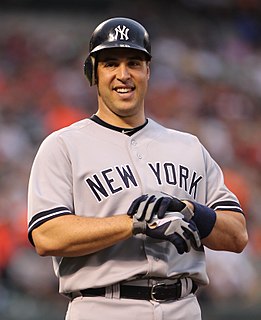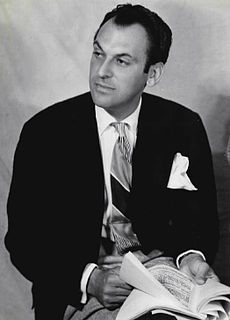A Quote by H. G. Wells
Nothing could have been more obvious to the people of the early twentieth century than the rapidity with which war was becoming impossible. And as certainly they did not see it. They did not see it until the atomic bombs burst in their fumbling hands.
Related Quotes
The atom bomb was no “great decision.” It was used in the war, and for your information, there were more people killed by fire bombs in Tokyo than dropping of the atomic bombs accounted for. It was merely another powerful weapon in the arsenal of righteousness. The dropping of the bombs stopped the war, save millions of lives.
But when did you see her, talk to me? When did you see her go into the cave? Why did you threaten to strike a spirit? You still don't understand, do you? You acknowledged her, Broud, she has beaten you. You did everything you could to her, you even cursed her. She's dead, and still she won. She was a woman, and she had more courage than you, Broud, more determination, more self-control. She was more man than you are. Ayla should have been the son of my mate.
So far as I can see, the atomic bomb has deadened the finest feeling that has sustained for ages. There used to be so-called laws of war, which made it tolerable. Now we know the truth. War knows no law except that of might. The atomic bomb brought an empty victory but it resulted for the time being in destroying the soul of Japan. What has happened to the soul of the destroying nation is yet too early to see.
The German physicists knew at least so much about the manufacture and construction of atomic bombs that it was clear to them that the manufacture of bombs in Germany could not succeed during the war. For this reason, they were spared the moral decision whether they should make an atomic bomb, and they had only worked on the uranium engine.
This violence is so pervasive. We see it in our schools, where we have more security guards now than teachers. We see it in California where more prisons are being built than colleges. It goes on and on. We see it in a trillion-dollar war budget, politics becoming an extension of war rather than vice versa. This violence is like a fog. It covers everything.
If God created the universe, there was a time when he commenced to create. Back of that commencement there must have been an eternity. In that eternity what was this God doing? He certainly did not think. There was nothing to think about. He did not remember. Nothing had ever happened. What did he do? Can you imagine anything more absurd than an infinite intelligence in infinite nothing wasting an eternity?
Modernism really started with people getting infatuated with the idea of "it's the twentieth century, is this suitable for the twentieth century." This happened before the First World War and it wasn't just the soldiers. You can see it happening if you read the Bloomsbury biographies. It was a reaction to a great extent against Victorianism. There was so much that was repressive and stuffy. Victorian buildings were associated with it, and they were regarded as very ugly. Even when they weren't ugly, people made them ugly. They were painted hideously.
Film is more than the twentieth-century art. It's another part of the twentieth-century mind. It's the world seen from inside. We've come to a certain point in the history of film. If a thing can be filmed, the film is implied in the thing itself. This is where we are. The twentieth century is on film. You have to ask yourself if there's anything about us more important than the fact that we're constantly on film, constantly watching ourselves.
And I wish that I was made of stone So that I would not have to see A beauty impossible to define A beauty impossible to believe A beauty impossible to endure The blood imparted in little sips The smell of you still on my hands As I bring the cup up to my lips No God up in the sky No devil beneath the sea Could do the job that you did, baby Of bringing me to my knees
Other centuries had their driving forces. What will ours have been when men look far back to it one day? Maybe it won't be the American Century, after all. Or the Russian Century or the Atomic Century. Wouldn't it be wonderful, Phil, if it turned out to be everybody's century, when people all over the world--free people--found a way to live together? I'd like to be around to see some of that, even the beginning.



































